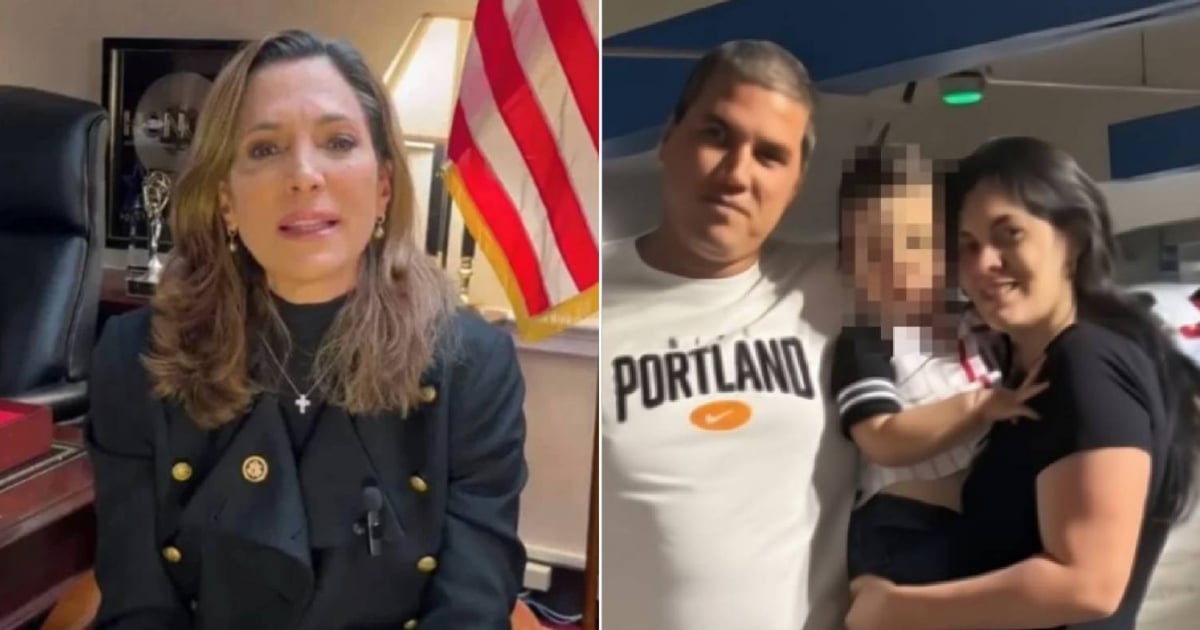On Tuesday, Cuban-American Congresswoman Maria Elvira Salazar celebrated the release of Yadira Cantallops, a mother previously detained by the U.S. Immigration and Customs Enforcement (ICE). She reiterated her commitment to the thousands of Cuban migrants caught in the legal limbo of the I-220A immigration status. "Another one freed! I welcome this good news with relief, but I won't forget those still detained or the thousands trapped in legal uncertainty. My fight continues until they receive the parole they deserve!" Salazar expressed on her X account (formerly known as Twitter), using the hashtag #I220A.
Yadira Cantallops, originally from Holguín, was taken into custody by ICE officers in March in Miramar, Broward County, Florida, during a routine immigration appointment. She was subsequently transferred to a detention center in California, where she remained for a month and 11 days before presenting her case in immigration court. After posting a $1,500 bond set by a judge, she was released.
Journalist Daniel Benítez reported that Cantallops has reunited with her son, a U.S. citizen, and will continue her asylum proceedings while free. She entered the United States in January 2022, alongside her husband, under the I-220A form, which was recently recognized as a supervised release order.
The Ongoing Struggle of Cuban Migrants
While Yadira is back home, the situation for other Cuban women arrested under similar circumstances remains unresolved. Among them, Denisa Reyes, detained on the same day as Cantallops, also received a bond (set at $6,000), but her release has yet to be confirmed.
The apprehensions of Cuban women with I-220A during their ICE appointments began on March 13, 2025, with the case of Mailén González, sparking protests among the Cuban community in Miami. In the following days, at least six women were detained under the same status, creating fear and uncertainty among thousands of Cuban migrants with I-220A.
Many of those detained had no criminal records, were unaware of the reasons for their arrest, and reported poor conditions in detention facilities. Maria Elvira Salazar's actions—amidst criticism from Cuban emigrants accusing her of betraying the community by not defending them against the anti-immigrant rhetoric of the Trump Administration—add to the public, legal, and communal efforts that have led to specific releases like Cantallops'.
However, the fate of dozens of Cubans under I-220A remains unresolved, as immigrant community pressure mounts for this status to be acknowledged as a pathway to parole or legal immigration adjustment.
Understanding the I-220A Immigration Status
What is the I-220A immigration status?
The I-220A is a form of supervised release order that has been used to allow certain migrants to remain in the U.S. under specific conditions. It is not a permanent legal status and does not guarantee a pathway to citizenship or permanent residency.
Why are Cuban migrants under I-220A being detained?
Cuban migrants with I-220A have been detained during routine ICE appointments, possibly due to policy changes or enforcement measures. Many detainees have reported being unaware of the reasons for their arrest.
What steps are being taken to resolve the legal status of those under I-220A?
Efforts are ongoing from legal, public, and community advocates to push for recognition of I-220A as a viable pathway to parole or legal adjustment. These efforts include lobbying for policy changes and providing legal support to affected individuals.
